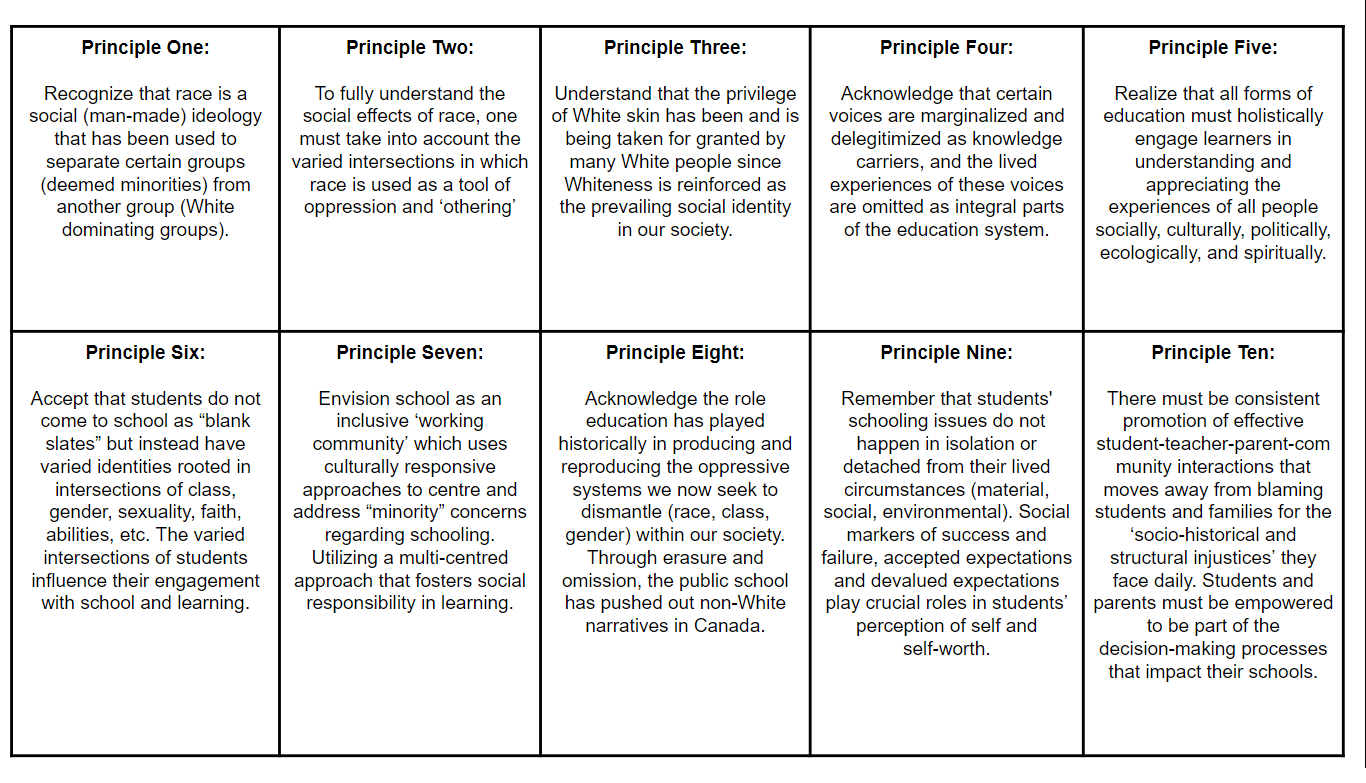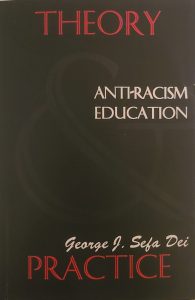An expression used colloquially in the English language says “______ wrote the book on that subject,” can be applied to George Dei’s research on Anti-Racism Education. Though written in 1996, it outlines so many fundamental principles of antiracism education that educators must grapple with in order to do this work well.
Race has been and is being used as an identifier, a marker that sets one apart from another, which is reinforced by the perceived dominant group through deliberate erasure and omission of narratives regarding who occupies particular spaces. Action-oriented strategies and explicit identification and naming of race and social issues that strike at the heart of the power imbalance and inequities found in our education systems are what Dei explores in this resource, this call-to-action. The ten basic principles of Anti-racism Education are summarized in the chart below.  “Anti-racism education may be defined as an action-oriented strategy for instructional, systemic change to address racism and the interlocking systems of social oppression… Anti-racism education seeks to build what has been termed “communities of differences.” This task can only be undertaken successfully if educators first learn how to deal with difference and the inherent conflictual interests and power imbalances in our societies.” (Dei, 1996).
“Anti-racism education may be defined as an action-oriented strategy for instructional, systemic change to address racism and the interlocking systems of social oppression… Anti-racism education seeks to build what has been termed “communities of differences.” This task can only be undertaken successfully if educators first learn how to deal with difference and the inherent conflictual interests and power imbalances in our societies.” (Dei, 1996).
As educators committed to teaching and learning centered on anti-racism and anti-oppression, it is pertinent to examine and reflect on these basic principles.
Ask yourself:
- What areas in my teaching & learning styles foster anti-racist teaching?
- What areas in my teaching & learning styles require change?
- How can I integrate these ten principles in my learning environment (classroom) to foster equitable learning?
Taking the time to intentionally examine ourselves as educators, to think about our styles and reflect on our practice is essential to consistently cultivating meaningful learning for our students, particularly racialized students who are often not reflected at the forefront.
Examine, Reflect, Refine. This is one of the ways we continue to work towards ‘Building Better Schools.’

